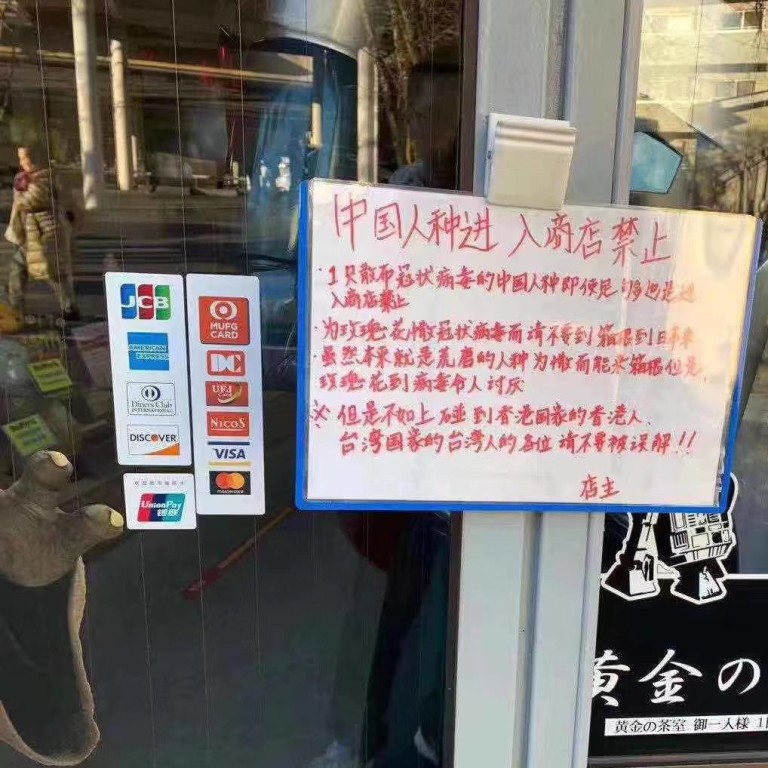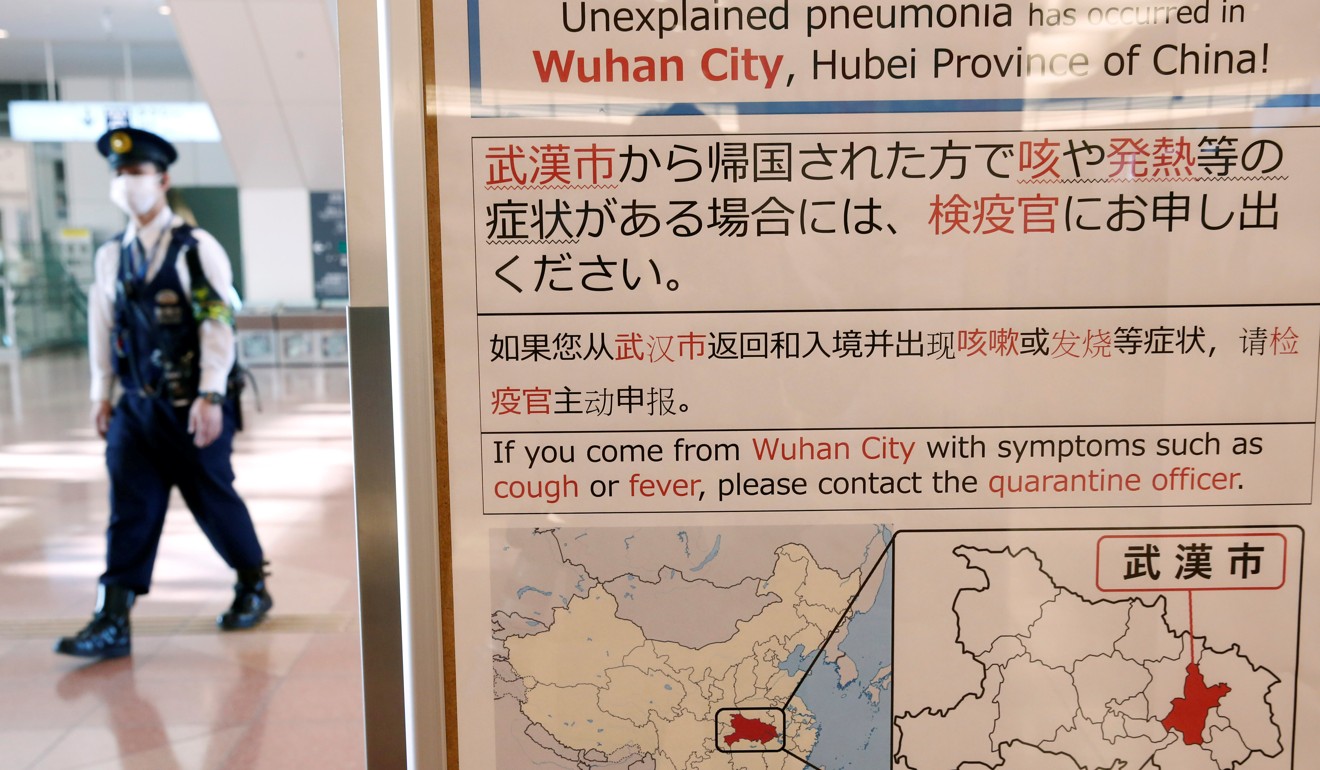
‘No Chinese allowed’: Japanese shop criticised for coronavirus sign
- Shop owner in Hakone says he wanted to prevent Chinese tourists from spreading the virus
- Tourism centre apologises; legal expert says sign is ‘obviously wrong’ but not against the law
“No Chinese are allowed to enter the store”, said a sign attached to the shop’s door. “I do not want to spread the virus.”
The owner of the confectionery store, who has not been identified, told the Asahi newspaper that he used a translation application to write the message in Chinese, adding, “I want to protect myself from the virus and I don’t want Chinese people to enter the store.”
Asian health officials fear coronavirus outbreak larger than China says
Japanese health authorities have so far confirmed only one case of the virus, which is thought to have originated in Wuhan, China, but are stepping up precautions amid signs the disease is spreading. China has confirmed nine deaths and 440 infections from the virus.

Shin Hae-bong, a professor of law at Aoyama Gakuen University, said the store owner was not breaking the law as there was no legislation in Japan that specifically made acts of discrimination illegal.
“This is obviously wrong, but the only thing that could be done would be for a suit to be filed as many Japanese courts have in recent years ruled against places that bar people based on their nationality,” she said.
“The courts have, in those cases, used the International Convention on the Elimination of All Forms of Racial Discrimination for the basis of their rulings.
“The shop owner could be told that if he is sued then he would probably have to pay compensation to his victims, but the problem is that tourists are unlikely to bring a lawsuit and the case would take three or four years to reach a conclusion,” she said.
A spokeswoman for the Hakone Tourist Information Centre was aware of the sign and apologised.
“But we have been made aware of this shop and the sign. It is only one shop, but still we are very sorry and can only apologise to Chinese visitors.”
She said that the tourist information centre was powerless to intervene, adding that it has not yet received any complaints from Chinese visitors.

